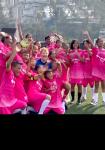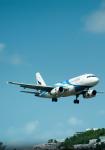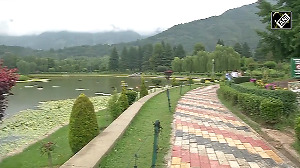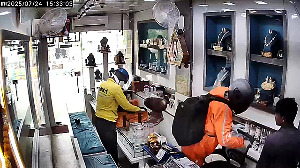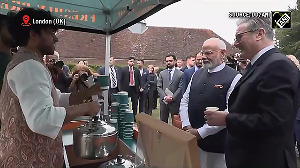Hyderabad’s Dilsukh Nagar became a victim of terror for the second time on Thursday. On November 21 2002, a blast occurred at the Sai Baba temple in the same area in which two persons were killed and 22 others were injured after an improvised explosive device triggered the explosion.
That blast was blamed on the Students Islamic Movement of India, which was allegedly taking revenge after it was banned by the Union government. The case was handled by the Andhra Pradesh crime investigation department.
During the course of the investigations the police found that members of the SIMI had coordinated with some Lashkar-e-Tayiba officials, namely Syed Aziz and Mohd Azam, and carried out that attack.
The latest attack appears to be similar in nature. In the blasts that occurred on Thursday and the one in 2002, IEDs were packed in tiffin boxes and the intensity was extremely high.
Dilsukh Nagar has been targeted repeatedly because of the immense number of people that gather there at all times. It is a busy area and also houses a market, which is one of the biggest in the world.
During the 2002 blasts probe, the police were able to ascertain the role of the SIMI in the attack. They had even brought down Syed Salahuddin Salar, a former president of organisation, in connection with the blast.
Salar had gone out off the police radar after the ban on SIMI and it was only two years back that he was arrested in Kochi while he was returning from Dubai.
Salar was initially taken to Ujjain and later brought down to Hyderabad in connection with the 2002 blasts.
The police said that the SIMI network was strong at that time and it had coordinated the attack with the Lashkar in order to avenge the ban. However, over the years, the Lashkar introduced the HuJI in Hyderabad and this has been the group that has been the strongest since then under the leadership of Shahid Bilal, who was killed recently in Pakistan.
Dilsukh Nagar has been a happy hunting ground for terrorists. The Delhi police during its questioning of an Indian Mujahideen operative had learnt that there was a survey conducted by the group at the very same area a year back and they were planning on carrying out a strike.
The three Indian Mujahideen operatives -- Asad, Imran Khan and Sayeed Firoz who were arrested from the Pul Prahaladpur area in South Delhi last year -- had spoken about striking at major cities, and one of them even told the police that they had conducted a survey in Hyderabad.
The accused persons had also confessed that they wanted to avenge the death of another IM operative Qateel Siddiqui who had died in a Pune jail. Moreover, the intention was to regroup and carry out a series of strikes across the country to announce the return of the Indian Mujahideen.
Dilsukh Nagar, which had already witnessed a terror strike in 2002, would have witnessed another horrific incident in 2007.
The city had already witnessed two horrific blasts at Lumbini Park and Gokul Chat, which claimed over 40 lives. At the same time around, the police had found a bomb at Dilsuk Nagar and the same was timed to go off at 9.30 pm on the same day.


